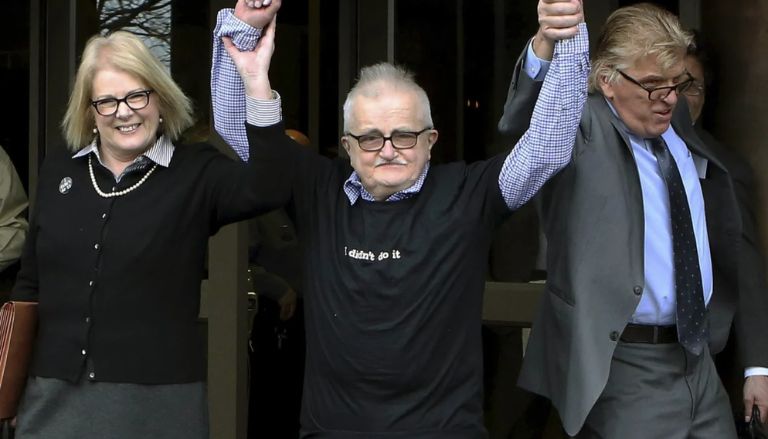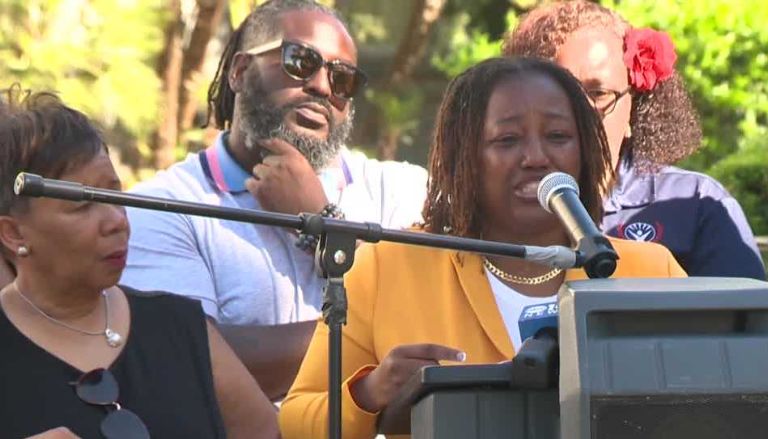HARTFORD, Conn. — More than four years after his death, Richard Lapointe’s family will receive almost $5.9 million from Connecticut. This is for his wrongful imprisonment of 25 years, which ended in 2015 when his murder sentence was overturned. He had been accused of raping and killing his wife’s 88-year-old grandmother.
Lapointe’s case gained a lot of attention, with many advocates for people with disabilities and famous figures like writers Arthur Miller and William Styron pushing for his freedom. Lapointe, who died at age 74 in 2020, had Dandy-Walker syndrome, a rare congenital brain malformation that his lawyers think was a factor in his falsely confessing to the crime.
The state claims commissioner’s office issued an award on January 2, after many years of legal disputes between Lapointe’s lawyers and the state attorney general’s office. This award now needs to be approved by the lawmakers. Lapointe was not found innocent, but both sides came to an agreement, which resulted in the payment.
“Paul Casteleiro, Richard Lapointe’s lawyer, said on Friday that the award is not enough to make up for what happened to him.” He said the state ruined his life “for a crime he didn’t do.”
He said the award shows that the state acknowledges the mistake it made in pursuing and imprisoning an innocent person. Unfortunately, Richard didn’t live long enough to see his name cleared.
When asked about the award and Lapointe’s case, the attorney general’s office gave a short comment on Friday. They said they worked out a solution for this issue that benefits everyone involved. “This shows how that process works.”
Claims Commissioner Robert Shea Jr. said his office thinks the settlement is “fair and suitable.” The agency chooses if people can sue the state or get compensation under the law for wrongful imprisonment.
A representative from the claims commissioner’s office has not yet responded to an email asking for more information.
Bernice Martin, the grandmother of Lapointe’s wife, was found stabbed, raped and killed in 1987 in her burning apartment in Manchester, about 10 miles (16 kilometers) east of Hartford.
Lapointe, a dishwasher, was found guilty of murder in 1992 and received a life term with no chance of getting out. Important evidence in the case included confessions he gave during a 9.5-hour questioning by Manchester police. His defenders said that his mental disability made him likely to give false confessions. They claimed that he was pressured into confessing without any defense lawyers there.
In 2015, the state Supreme Court decided 4-2 that Lapointe did not get a fair trial because the prosecutors did not share notes from a police officer that might have backed his alibi. Later that year, authorities announced that new DNA tests did not link Lapointe to the case, and all the charges were dropped. No one else has been accused in the murder.
Ten days after the court’s decision, Lapointe was released and left the Hartford courts wearing a black T-shirt that said, “I didn’t do it.” He raised his hands in victory.
“Of course I didn’t do it,” Lapointe said. “That wasn’t me.” I wouldn’t do something like that to anyone. I wouldn’t even kill my worst enemy.”
Casteleiro said the case ruined Lapointe’s family, and they turned away from him. Before the killing, Lapointe and his wife, who has cerebral palsy, were building a life together. “They were doing fine,” Casteleiro said. She divorced him after he was arrested, and he lost all touch with his young son.
After getting out of jail, Lapointe developed dementia, moved to a nursing home in East Hartford, and died from COVID-19, according to his lawyers.
Over the years, he received help from various supporters, including groups like Friends of Richard Lapointe and Centurion, an organization in Princeton, New Jersey, where Casteleiro works to assist people who have been wrongfully accused.







Leave a Comment